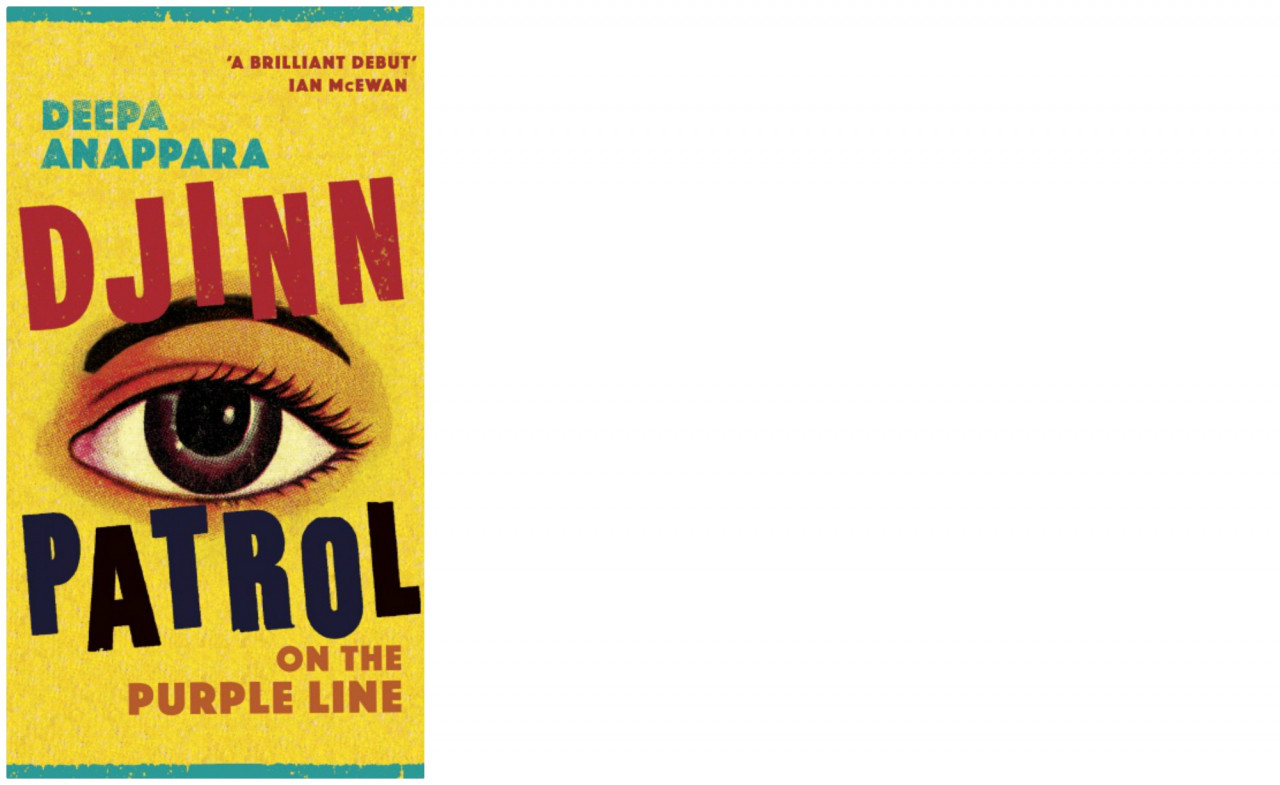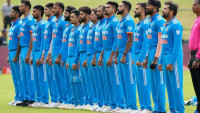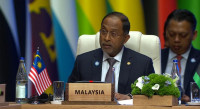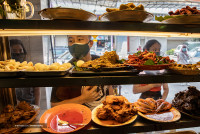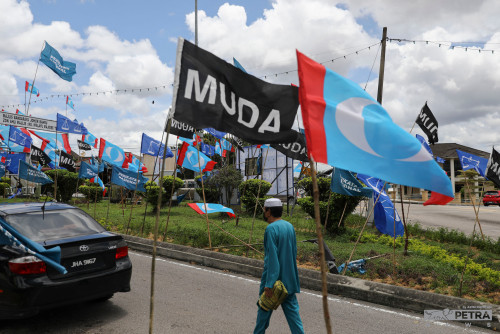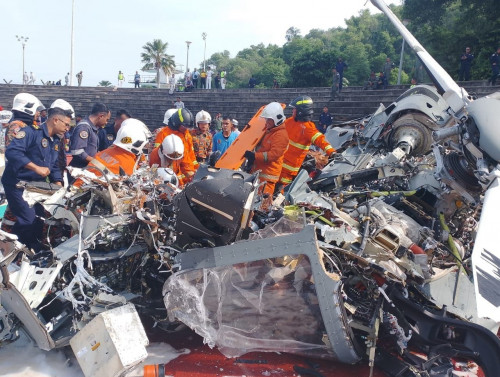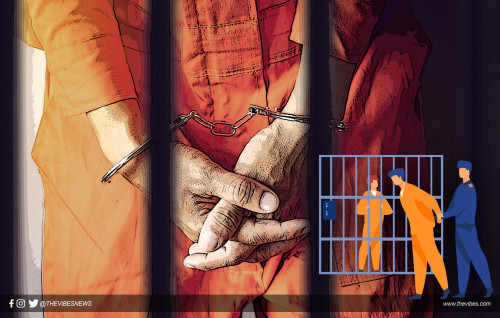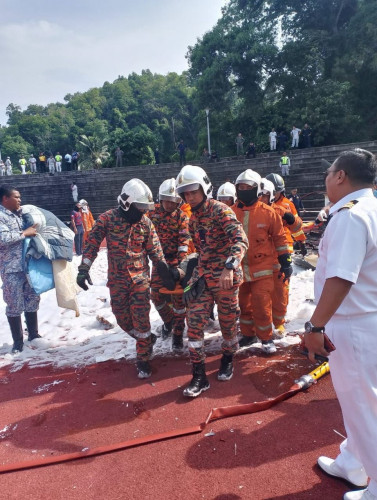MORE than 1,000 children disappear every week in India, and most are never seen or heard from again.
One of the main characters in ‘Djinn Patrol on the Purple Line’ is the setting: a grimy basti (district) in a sprawling Indian city that could plausibly or deniably be Delhi or Mumbai, or maybe even Bengaluru.
These are all cities that Kerala-born writer Deepa Anappara knows all too well.
Having studied in the latter she worked for eleven years as a journalist in both of the former, writing award-winning reports on the impact of religious violence and poverty on children and their education.
These are among the themes she draws upon in this very confident debut novel.
Though this unnamed place can be a stand-in for any large Indian city, given the cold winter, the thick smog, and the fact that people speak Hindi, it certainly feels, smells, tastes, sounds, and reads very much like Delhi.
The dirty labyrinthine alleys of Bhoot Bazaar and the muddy ramshackle warren of the adjacent basti are so authentically evoked that it makes you want to wash your hands. Or maybe that’s just a side-effect of reading in 2020.
The smog is ever-present, some days it’s thicker than others. We see the denizens of the basti socializing in the interminable queues for the communal toilets or the water pump. They live in fear of the municipal bulldozers that could eradicate their homes at a moment’s notice, adding a pervasive existential threat.
We meet a trio of protagonists: nine-year-old Jasoos Jai, the Greatest Detective on Earth, or so he imagines himself in daydreams inspired by watching Police Patrol and detective shows on television; his Muslim friend (this is relevant) and schoolmate Faiz; and whip-smart Parroo, who symbolizes a girlhood that must battle the odds in the face of an oppressive patriarchy.
Even though Parroo never watches detective shows, she is always two steps ahead of Jai and acts as a reality check on his flights of fancy.
Apart from this triumvirate of friends, the novel is populated by a host of colourful characters, including family members, neighbours, teachers, policemen, mystically-inclined street children, other children who trawl through the rubbish dumps in search of anything that can be reclaimed or sold, and a huge buffalo that blocks half an alley and never seems to move.
Jai is an endearing narrator. Cheeky and vibrant, we see him scurrying through narrow alleys, hyper-aware of his surroundings, yet ultimately and tragically powerless. He befriends and adopts a dog he names Samosa. Unbeknownst to his parents, he works part-time at a chai stall to repay a debt that no one knows he owes.
Jai and his friends inhabit a literal and figurative liminal zone; between the threat of the bulldozer and the rubbish ground and the people who live in the fancy Hi Fi flats; between childhood and adulthood; between innocence and grief.
When it comes to investigating a spate of child disappearances in the basti, Jai’s idealised image of the policeman as a role model is harshly juxtaposed against the inaction, bribery, and corruption he witnesses first-hand.
There is more than a little religious zealotry and bigotry involved, with Muslims being arrested as prime suspects, despite having solid alibis.
Faced with this increased hostility and scapegoating towards the Muslim community, Faiz announces that his family is considering leaving the basti to move somewhere where there is safety in numbers.
In the wake of the disappearances, every child becomes a child of the basti. Jai realizes that his every move is watched, albeit mostly benevolently, and potentially reported back to his mother.
Even despite the targeting of Muslims, the shared tragedy forms and strengthens bonds within the impoverished community that knows it must face its fate largely unaided by the powers-that-be.
This is not a feel-good poverty-porn story. The only silver lining, if there is one, is in the rainbows swirling in a greasy puddle. It is a very sympathetic book that never condescends, and one that stays with the reader for a long time.
Without giving too much away, part of that lasting impact is due to the lack of a resolution.
While children are clearly being abducted, their fates are never explicitly stated, though there are suggestions, including but not limited to them being sold into slavery to work in Nepali brick factories, or being trafficked for their organs.
But by refusing to definitively focus on one particular scenario the doors are left open for the reader to imagine the horror of them all.
Narratively speaking, the gut-punch of never knowing is powerful.
This might be a bit disconcerting for readers looking for or used to novels with conventional conclusions. But it is a stark reminder that these are real situations people are forced to face in their all-too-very-real lives.
While the title of this book is colourful and evocative, the Metro doesn’t play a particularly important role, though Jai briefly forays into this new and unfamiliar world.
Similarly, while there are stories of the titular djinns, there is no magical realism at work here.
The djinns remain stories; straws grasped at by children trying to make sense of the illogical cruelty of the world they live in.
But the symbolic meeting of modernity and superstition suggested in the unusual title is very much a theme that runs throughout the story.
While this is a novel with a social conscience, for such a serious subject matter the tone is light and humorous. It is softened by being told through Jai’s perspective, with his childlike but never childish gaze, even if his naivety is rapidly updated by the harsh and cruel realities he witnesses.
But beyond being an engaging story, where this book really excels is in the vibrancy of the writing, which often mimics the cadences of Hindi.
There is even a smattering of untranslated and unapologetically unitalicized Hindi throughout this book, and a few repeated catchphrases like Jai’s “okay-tata-bye” that stick in the reader’s mind long after reading.
From the very first page the energetic and often funny writing grabs the reader. Despite the subject matter, this is an enjoyable and entertaining, yet powerful read. – The Vibes, December 19, 2020
